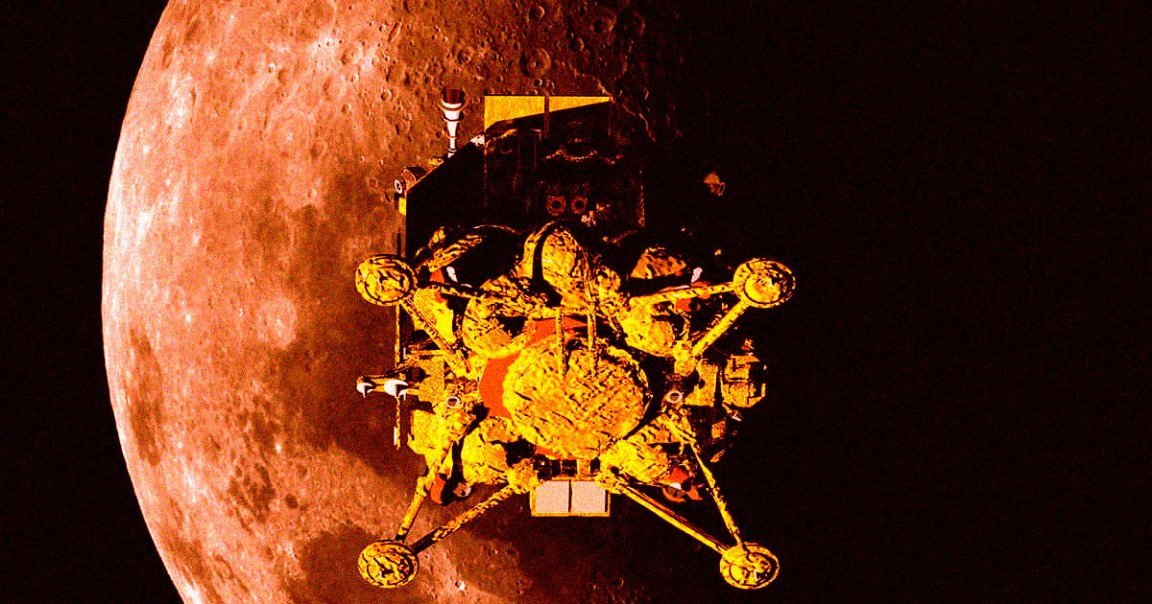
Summertime Sadness
While India has successfully become only the fourth country to make a soft landing on the Moon, Russia’s latest attempt ended in a crash landing.
Its Luna-25 spacecraft, which was meant to follow up on the Soviet Union’s Luna missions from the 1970s, made a hard impact with the lunar surface less than a week before India’s Vikram lander touched down near the lunar south pole.
As we’ve previously pointed out, the crash couldn’t have happened at a worse time for Russia’s space agency — given international turmoil, a largely isolated space program, and uncertainty shrouding future space collaborations.
But if the Kremlin is to be believed, there was nothing wrong with Luna-25’s demise. In fact, it was actually a good thing, because it will serve as a rallying cry to continue on.
“This is not a reason to despair, nor to tear our hair out,” Kremlin spokesman Dmitry Peskov told reporters, as quoted by Reuters. “This is another reason to analyze the causes (of the failure) and eliminate them next time.”
Through Thorns
On August 19, Russia’s lunar lander failed to make an important adjustment to its orbit, an “emergency situation” that “did not allow the maneuver to be performed with the specified parameters,” according to a Roscosmos statement at the time.
Nonetheless, the country is already planning to follow up its failed mission with Luna-26 through Luna-28, increasingly ambitious steps in Russia’s lunar program.
Luna-26, which is tentatively scheduled for 2027 — it’s anybody’s guess how the most recent crash will affect that timeline — will supposedly see Russia hunting down lunar resources.
Luna-27 is designed to explore the composition of the lunar soil near the Moon’s south pole, which isn’t unlike the experiment India’s Chandrayaan-3 mission is carrying out right now. Luna-28 is meant to serve as a sample return mission.
Yet in large part due to Russia’s invasion of Ukraine, many of the country’s international partners have since pulled out, meaning that the country will likely have to blaze its own path. Last year, the European Space Agency officially announced it was ending all cooperation with Russia on future lunar missions.
In short, Rocosmos’ plans were already a tall order even before Luna-25 crash-landed earlier this month. But according to the Kremin’s swagger, it’s just getting started.
“We know that the way to the stars is through thorns,” Peskov added. “The main thing is to continue the Russian program.”
More on the crash: Russia’s Moon Lander Crashing Is a Catastrophe for Its Space Program